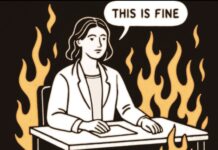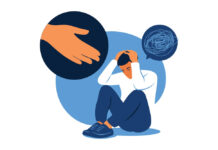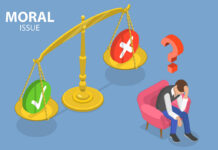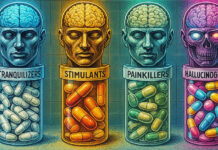“Life Unworthy of Life”: Historical Amnesia, Ausmerzen and the Rhetoric Surrounding Autism
The idea that human value can be reduced to economic contribution is not merely reductive—it is deeply dangerous.
Life in the Hospital Before Deinstitutionalization
Accounts of deinstitutionalization fail to describe recovery, peer support, or what it was actually like to be in the state hospitals.
How the Troubled Teen Industry Turns Pain Into Profit
These programs, though marketed as "therapeutic," are nothing more than profit-driven enterprises that exploit families at their most desperate.
Fighting Forced Treatment in Court: A Victory to Be Celebrated
It is very difficult to get off a mental health commitment. The counties fight tooth and nail to keep people in the system.
The Poetics and Politics of Our Mental Health Metaphors: An Interview with Laurence Kirmayer
Ayurdhi Dhar interviews influential cultural psychiatrist Laurence Kirmayer on how metaphors, histories, and social structures contour our experiences of suffering and healing.
Family Traditions and the Inheritance of “Madness”
Families are not merely a source of comfort and support but also a breeding ground for dysfunction, unhealed trauma, and emotional neglect.
What Does Consent Mean in Practice? A Lived Experience Perspective
Every time I agreed to 'treatment’, I was told that it was necessary to save my life. I was sold a bunch of lies.
Post-Acute Withdrawal Syndrome (PAWS): Why Don’t We Know More About It?
Persistent antidepressant withdrawal is a debilitating experience, but little research exists about its prevalence and treatment.
Heritability Explains Less About Mental Disorders Than You Think
The focus on diseased brains and genes obscures the significance of social and environmental influences.
The Betrayal of Professionals with Lived Experience
I know that being “out” at work could help challenge stereotypes and reduce stigma but I hide. I have that luxury.
We Can’t Help People With Trauma If We Can’t Say Trauma
Although the medical care Cary received was excellent, no one mentioned “trauma” or counseled us on how it might manifest emotionally.
The Wound That Speaks
In my case, writing was the beginning of healing. It pulled me out of the abyss and gave me structure, voice, and purpose. It gave me a sense of authorship over a life hijacked by memory.
Beyond the Pill Paradigm: Reclaiming Humanity in Mental Health Care
By tackling social causes of distress along with personal support, we prevent suffering rather than just reacting to emergencies.
Power, Privilege & Controlling the Narrative: Vested Interests in ‘Mental Health’
Alienating someone from their own meaning-making is a violent action, but that's what happens when professionals use unscientific, decontextualised diagnoses.
Antidepressant Withdrawal Is Common and Debilitating
Those using antidepressants long-term were more likely to experience withdrawal and to have severe withdrawal symptoms.
Two Decades of PSSD: A Life Stolen by Antidepressants
Our two-year-long collaborative research project suggests that neuroimmune processes and related downstream mechanisms may play a role in PSSD.
Something Broken: My Mother’s Story
The use of psychiatry against women who have experienced male violence is a form of control. It silences women and maintains the status quo.
More Evidence That Antidepressants Work Via Placebo Effect
Antidepressants were more effective for depressed patients who were more “optimistic.” Still, only 30% responded to SSRIs.
Kermit Cole: Dialogical Therapy and Quantum Theory Walk Into a Bar…
On the podcast this week we are joined by Kermit Cole who shares his thoughts on how humor can help in creating a shared experience that is helpful to the healing process. Kermit, in his experiences of being with people in psychotic states, has seen humor as a moment when a connection can be made. In many ways, this project is bringing Kermit back full circle to his work as a film director, early in his professional career.
Are Psychiatrists More Mad Than Their Patients?
Misconceptions among psychiatric leaders are at variance with the scientific evidence. They suffer from a serious, collective delusion.
Criticisms That Establishment Psychiatry Can and Cannot Tolerate
Criticism that uniquely applies to establishment psychiatry but not to medicine in general threatens its existential legitimacy, and is not tolerated.
Death in a Bottle: My 24-Year Battle with Benzodiazepines
I’m not even taking Klonopin because it helps me. I’m taking Klonopin so I don’t go through withdrawal from Klonopin. That’s the trap.
And You Thought They Were Side Effects: How Psychiatry Turned Chemical Disruption Into Medical...
There’s no cure beneath the disruption, just a chemical hit that alters perception or behavior.
Chemically Imbalanced: Joanna Moncrieff on the Making and Unmaking of the Serotonin Myth
Joanna Moncrieff joins Robert Whitaker to talk about her latest book, titled Chemically Imbalanced: The Making and Unmaking of the Serotonin Myth. They discuss the serotonin story and the fact that there is no good evidence that a serotonergic deficiency is a primary cause of depression.
The Quiet Crisis in Mental Health: The Medicalization and Deskilling of Psychotherapy
The focus on the "worried well" and the exclusion of the "mad" serves to legitimize psychiatric control and surveillance.

































